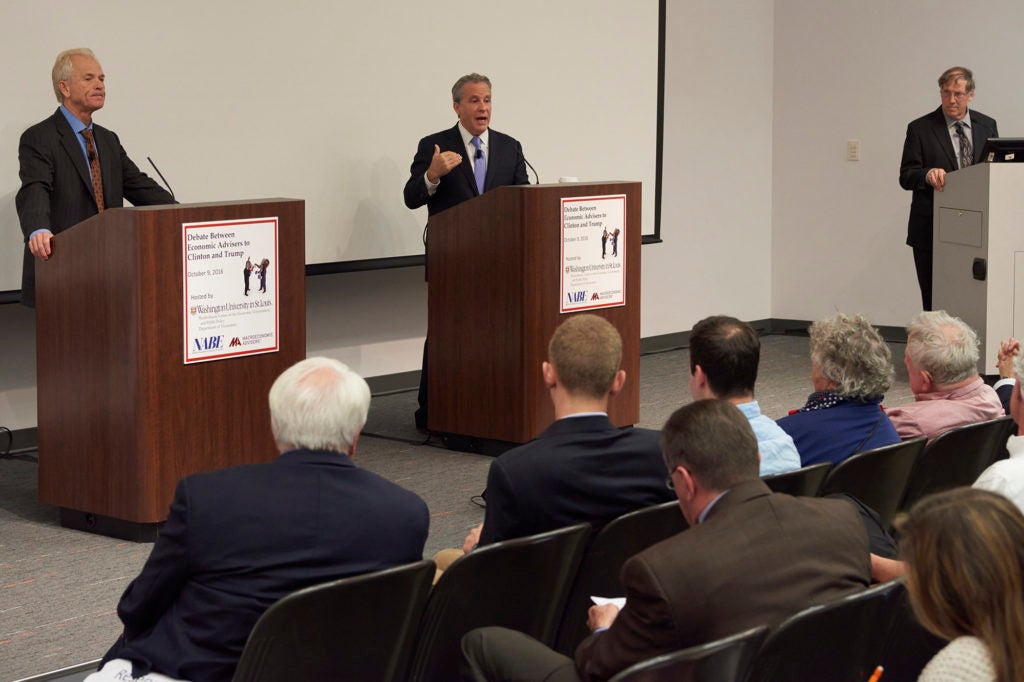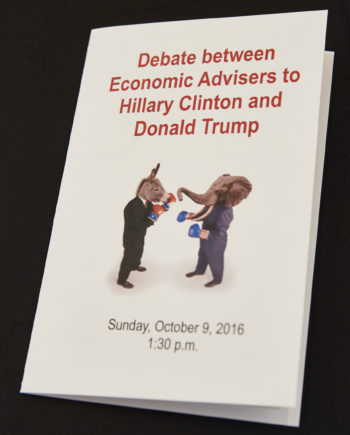
Before the actual debate, economic issues were discussed in Steinberg Auditorium. Peter Navarro (left), an adviser to Donald Trump, verbally sparred with the Clinton campaign’s Gene B. Sperling, under the watchful eye of economist Steven Fazzari (far right). (Photo: Dan Donovan/Washington University)
Along with photo booths, celebrity sightings and live media broadcasts, a 90-minute detailed examination of economic policies proved to be a hot-ticket event before Sunday’s presidential debate at Washington University in St. Louis.
Students, alumni and others interested in the U.S. economy packed the 298-seat Steinberg Auditorium in Steinberg Hall on the Danforth Campus to listen to a debate between economic advisers to presidential candidates Hillary Clinton and Donald Trump.
“I was glad for the intellectual substance that this event offered,” said Jae Hee Jung, who is working toward a doctorate in political science. “This election has been unique, with many diversions from the serious issues such as the economy.”
 Topics debated in statistical detail and with polite passion included income inequality, foreign trade and taxes. “It was satisfying to delve into important economic issues,” Jung said.
Topics debated in statistical detail and with polite passion included income inequality, foreign trade and taxes. “It was satisfying to delve into important economic issues,” Jung said.
The Clinton campaign was represented by Gene B. Sperling, former director of the National Economic Council and an economic adviser to presidents Bill Clinton and Barack Obama. Trump’s adviser was Peter Navarro, a business professor at The Paul Merage School of Business at the University of California-Irvine, and a frequent media commentator on economic issues.
Moderator Steven Fazzari, the Bert A. and Jeanette L. Lynch Distinguished Professor in Arts & Sciences, opened the debate with a sigh of relief.
“The economy has not dominated the campaign coverage in recent days,” said Fazzari, a leading scholar on the relationship between rising income inequality and macroeconomic trends in the United States. “I’m glad to see you are all so interested.”
David Steele, who is working toward a master’s degree at the university’s Brown School, also said he attended the economic debate because he craved substance. “This election has seemed more geared toward entertainment than substance,” said Steele, whose academic emphasis is on socio-economic development. “It was nice to focus just on the substance.”
The event was sponsored by the Weidenbaum Center on the Economy, Government and Public Policy.
A video of the complete program is available online here.